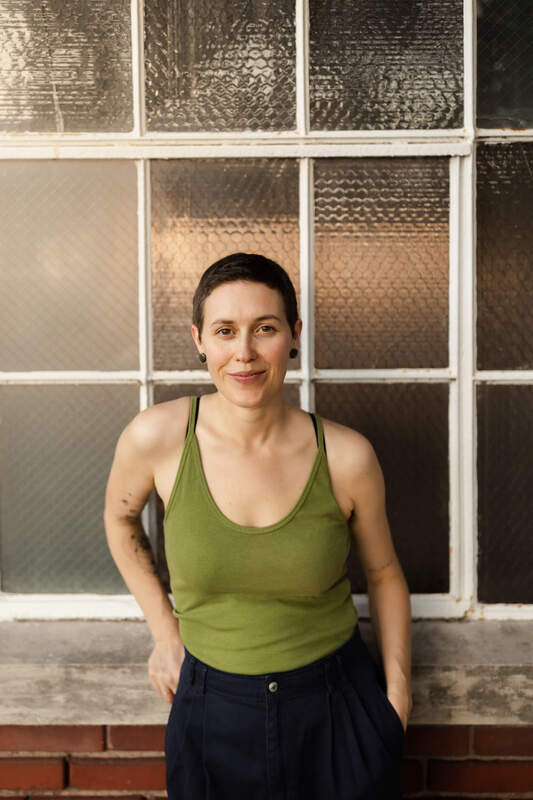Healthy Boundaries
Unhealthy Boundaries
Unhealthy boundaries are the opposite:
- Unclear/unconscious
- Unexpressed
- Unenforced
Unhealthy Boundaries Are Unclear
In order to maintain a healthy boundary, we have to be clear on what our boundaries are. One of the biggest impediments to setting and maintaining clear boundaries is a lack of self-knowledge and self-understanding. If our needs are unclear to us, then they are definitely going to be unclear to others. The only way to set a clear boundary is if you yourself understand what your boundaries are.
 Photo by Daiga Ellaby on Unsplash | But easier said than done, right? The vast majority of us did not grow up in families where we were taught to actively investigate our personal boundary systems, therefore, it’s quite common to have no idea what a boundary is. So, bringing our needs and limits (i.e. boundaries) into conscious awareness is extremely important when learning to have healthier boundaries. What does it look like when we don’t understand our own boundaries? Feeling resentful and drained is usually a sign that we need to evaluate our boundary system. Resentment often means our boundaries are being crossed in some way and it is our responsibility to figure out where and why this is occurring. |
Unhealthy Boundaries Are Unexpressed
In addition to getting clear with ourselves about what our needs and limits are, we need to clearly communicate our boundaries to others. Which sounds pretty straightforward, however, in reality, there are many things that can prevent us from doing so.
Sometimes we don't know what our needs are, as discussed above. Other times we know what our boundaries are, we’re just uncomfortable expressing them. But whatever the reason behind it, when we aren’t able to communicate our boundaries, it’s difficult for others to respect them.
The onus of responsibility falls on us to clearly communicate what we need. Just as it’s not our job to intuit or try to figure out what others need, it’s not other people’s responsibility to intuit our needs either. Expecting others to intuit our wants and needs is a form of codependency. It’s important to be upfront in our relationships about how we do and do not want to be treated.
Examples of Clearly Expressed Boundaries:
- "It really hurts my feelings when you ________, please don’t do that."
- "I’m needing someone to just listen; I don’t want to receive any advice right now. Are you able to do that?"
- "Please don’t call me after 10pm."
- "I feel lonely when you are constantly staring at your phone during dinner. I'm wondering if you would be willing to put your phone in another room when we eat together?"
Unhealthy Boundaries Lack Proper Enforcement
Enforcing our boundaries can be really difficult, especially for those of us who struggle with people-pleasing, conflict avoidance, or the Fawn trauma response. But sometimes it’s necessary to enforce our boundaries when others do not respect them.
| What does boundary enforcement look like? It really depends on the kind of boundary being set. Is the boundary a non-negotiable? Then enforcement may look like removing yourself from the situation, or the relationship, in order to protect yourself. Is the boundary related to a minor annoyance with someone who otherwise respects and cares about you? In that case, enforcement will likely involve bringing the boundary back up and negotiating a solution together. The healthiest kinds of boundary systems are flexible and able to accommodate different kinds of relationships and circumstances. |  Photo by Oksana Zub on Unsplash |
Examples of Boundary Enforcement:
- "If you continue yelling at me I am going to need to end this conversation."
- "As I already said, I really don’t want any advice on this right now, so can we please shift the focus away from that topic?"
- Your partner is not respecting your multiple requests to not bring their phone to the dinner table. At that point it might be time to address the underlying dynamic in your relationship where your needs and bids for connection are being ignored. In other words, the conversation continues until a resolution is discovered.
Having Unhealthy Boundaries is Self-Abandonment
Setting boundaries can be hard, especially when we first start to do it. But taking the time to get clear on our own needs and limits, following through on what we discover, and standing up for ourselves is a very powerful form of self-care. Setting boundaries is self-advocacy, and it’s the first step toward healing and improving our relationship with ourselves (the most important relationship we’ll ever have).
Failing to set the boundaries that we need is a form of self-abandonment because we are not protecting ourselves. When we do this we send the message to our inner child that they are not worthy of fighting for, they are not worthy of protecting. Often when we struggle to stick up for ourselves this has roots in early childhood experiences, and learning to set boundaries in our adulthood can help us begin to heal this trauma.
How to Get Started?
Self-reflection. Here are some journal prompts to get the wheels turning:
- Can you think of someone in your life that you need to set better boundaries with? How do you know you need healthier boundaries with them?
- Can you think of a specific situation where you felt resentful?
- Are there any relationships that leave you feeling bad about yourself? What is going on there?
- What messages did you get about saying “no” as a child?
- What modeling did you receive around navigating conflict and conflict resolution?
- What aspect of boundary setting do you struggle with - clarity, expression, or enforcement? Do any of them come easily for you?
Meet the Author
| Ready to work on your boundaries? Maggie is a therapist based out of Lawrence, Kansas who specializes in therapy for highly sensitive adults, therapy for self-esteem, therapy for anxiety, therapy for childhood trauma, and grief and bereavement counseling. Maggie is passionate about helping people overcome shame and the fear of being their true selves. Breaking the cycles of people-pleasing and self-abandonment is possible; you don't have to suffer alone. Maggie offers online therapy throughout the state of Kansas. Reach out today to schedule your free 15 minute phone consultation! |
Other Services Offered by Maggie
In addition to providing online therapy anywhere in Kansas, Maggie is also a professional astrologer, and offers Birth Chart Readings anywhere in the United States, as well as abroad.
Astrology is a powerful tool for gaining self-awareness, finding meaning in and understanding of our difficult experiences, and for receiving validation regarding our own unique life path. All of which supports our mental health in a positive way!
Interested in getting a Natal Chart Reading? Book a free phone consultation and let’s get started!



 RSS Feed
RSS Feed
